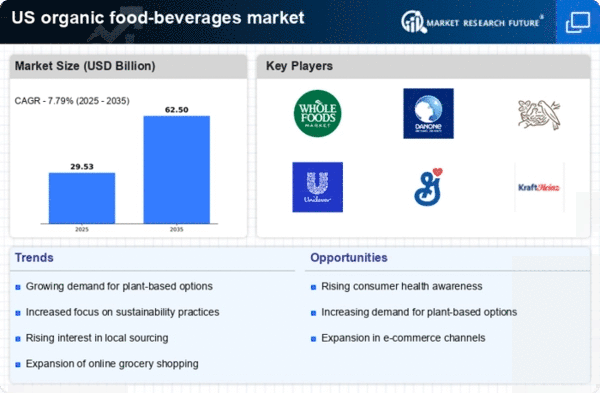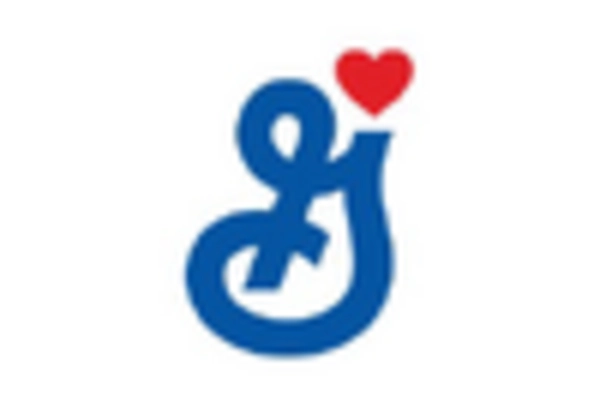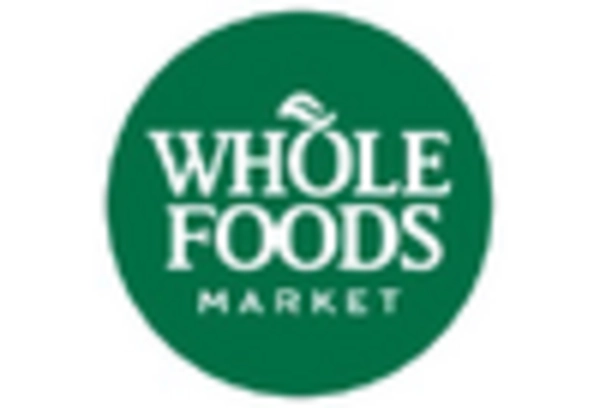The organic food-beverages market in the US is characterized by a dynamic competitive landscape, driven by increasing consumer demand for healthier and sustainably sourced products. Key players such as Whole Foods Market (US), Danone (FR), and Nestle (CH) are strategically positioned to capitalize on this trend. Whole Foods Market (US) focuses on enhancing its product offerings through local sourcing and community engagement, which resonates well with its target demographic. Meanwhile, Danone (FR) emphasizes innovation in plant-based beverages, aligning with the growing trend towards veganism and health-conscious consumption. Nestle (CH), on the other hand, is investing heavily in digital transformation to streamline its supply chain and improve customer engagement, thereby enhancing its competitive edge in the market.
The market structure appears moderately fragmented, with a mix of large multinational corporations and smaller niche players. Key tactics employed by these companies include localizing manufacturing to reduce carbon footprints and optimizing supply chains for efficiency. This collective approach not only strengthens their market positions but also fosters a competitive environment where agility and responsiveness to consumer preferences are paramount.
In October 2025, Whole Foods Market (US) announced a partnership with local farmers to expand its organic produce line, aiming to increase the availability of fresh, locally sourced products. This strategic move is likely to enhance customer loyalty and strengthen its brand image as a leader in organic offerings. Additionally, in September 2025, Danone (FR) launched a new line of organic dairy products that utilize innovative packaging designed to reduce environmental impact. This initiative not only addresses sustainability concerns but also positions Danone as a forward-thinking player in the organic sector.
In August 2025, Nestle (CH) unveiled a new digital platform aimed at improving consumer access to its organic product range. This platform leverages AI to provide personalized recommendations, thereby enhancing the shopping experience. Such technological advancements may significantly influence consumer behavior and purchasing patterns, positioning Nestle favorably in a competitive market.
As of November 2025, current trends in the organic food-beverages market are increasingly defined by digitalization, sustainability, and the integration of AI technologies. Strategic alliances among key players are shaping the landscape, fostering innovation and collaboration. The competitive differentiation is likely to evolve from traditional price-based strategies to a focus on innovation, technology, and supply chain reliability, as companies strive to meet the sophisticated demands of health-conscious consumers.

















